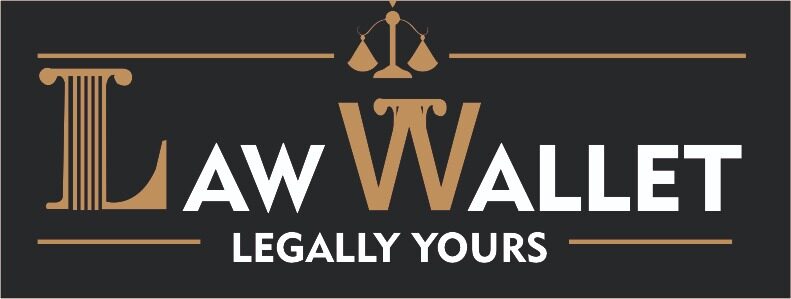Consumer Complaints Against Educational Institutions

Education is considered as one of the most important part for the development and growth of an individual. From kindergarten to school to college plays a major role in shaping the career of the student. Thus, April 1st, 2010 became an historic day for Indian children, when right to education was provided with the same status as that of Right to life provided under Article 21A of the Indian Constitution.
The Constitution (Eighty-sixth Amendment) Act, 2002 inserted Article 21-A in the Constitution of India to provide free and compulsory education of all children in the age group of six to fourteen years as a Fundamental Right in such a manner as the State may, by law, determine. The Right of Children to Free and Compulsory Education (RTE) Act, 2009, which represents the consequential legislation envisaged under Article 21-A, means that every child has a right to full time elementary education of satisfactory and equitable quality in a formal school which satisfies certain essential norms and standards.
Supreme Court even upheld right to education as a fundamental right in the case of Mohan Jain v State of Karnataka, wherein it held that Right to Education is a guaranteed fundamental right under Article 21 of the Indian Constitution. Thus, charging higher fee would be a straight violation of right to education, and thus, schools cannot charge higher fee to deny a citizen its right to education, which is also known as captivation fee.
However, Supreme Court in the case of Unni Krishna v. State of Andhra Pradesh, determined the constitutional validity of Mohan Jain’s case. Supreme Court in this case held that right to education is a fundamental right guaranteed under Article 21 of Constitution, as held in Mohan Jain’s case. However, Supreme Court modified the position held in Mohan Jain’s case and held that right to free education is available only to children until they complete the age of 14 years, but after the obligation of the state to provide education is subject to the limits of its economic capacity and development.
Thus, right to education have been held to be a fundamental right, time and again by the Supreme Court. However, even after Supreme Court clarification on the same, many educational institutions have been found not adhering to the guidelines set by Supreme Court and State Government’s and have acted arbitrarily, in violation to these guidelines.
Instances of Complaints by Consumers against Educational Institutions
- Unreasonable high admission charges;
- Deficiency in service on part of educational institutions;
- Excessive high monthly tuition fees;
- Backdoor admission;
- Hidden expenses which are exposed later;
- Denial of successfully made payment by students.
Remedy against Educational Institutions
Thus, in order to combat the unreasonableness by the educational institutions, legislation framed the Consumer Protection Act, 2019 to address the issues faced by the students and their parents. Under the Act, if the student is unsatisfied by their educational institutions on account of high fees being charged by them, or paid fees not accounted by them, students can file a complaint against the educational institution in the appropriate consumer forum, either online or offline and seek necessary redressal.
For determining the appropriate forum, jurisdiction have to be determined. Jurisdiction can be determined on the basis of amount claimed in the relief.
You have to file the complaint in district commission, if the amount claimed is upto Rs. 20 lakhs. However, the complaint have to be filed in state commission when the claimed amount is more than Rs. 20 lakhs but less than Rs. 1 crores. And the complaint have to be filed in national commission when the amount claimed is more than Rs. 1 crores.
How to file complaint in the consumer forum?
- First of all, visit the website https://consumerhelpline.gov.in/, and login to your account to add the relevant details;
- Thereafter, after adding all the necessary details required on the website, your case will be accepted and you will be assigned a case number;
- Thereafter, you have to deposit the original documents alongwith 2 copies at the consumer forum where your case is registered.
In Buddhist Mission Dental College and Hospital v. Bhupesh Khurana, the appellant had published an advertisement inviting applications for admission to Degree Course of Bachelor of Dental Surgery. The advertisement was ‘misleading’ in several ways. It was held by Supreme Court that this was a case of total misrepresentation which is an ‘unfair trade practice’; the appellant was neither affiliated nor recognised for imparting education; this fell within the purview of ‘deficiency’ under the Consumer Protection Act, 1986 (‘the Act’).
In Punjab Urban Planning and Development Authority v. Vidya Chetal, Supreme Court were clear, that the definition of ‘service’ is not exhaustive and the legislature has left the task to the judiciary to explain the provision on a case to case basis. “The purpose of leaving this provision open ended, without providing an exhaustive list indicates the requirement for a liberal interpretation.” How then are, mostly all activities related to educational institutions excluded from the reach of the Act?
Further, Supreme Court in the case of Manu Solanki v. Vinayak Mission University, held that “Such incidental activities of an educational institution while imparting education would not amount to rendering any ‘service’ under the provisions of the Consumer Protection Act, 1986.”
Supreme Court in the case of Bihar School Examination Board v. Suresh Prasad Sinha held that examination service conducting center was not rendering any service and thus, is not liable for fault in conducting examination. It further held that such institutions does not come under the purview of Consumer Protection Act.
CONCLUSION
Education is an important part in growth and development of any individual. However, unreasonableness on the part of educational institutions proves to be biggest threat to such growth. With legislature introducing Consumer Protection Act, the interest of consumers proved to be protected with a high degree, by providing quick dispute redressal mechanism.

